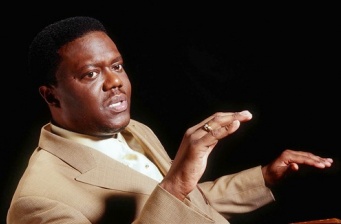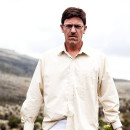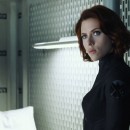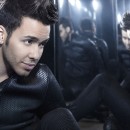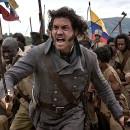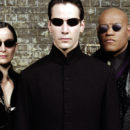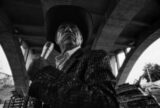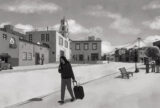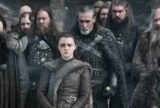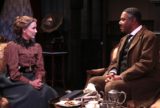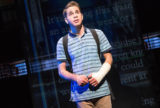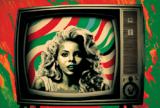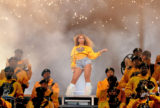Bernie Mac dies at 50
08.9.2008 | By Mack Chico |

Bernie Mac, a stand-up comic who played evil-tongued but lovable rogues in films like “Bad Santa” and “Mr. 3000” and combined menace and sentiment as a reluctant foster father on “The Bernie Mac Show” on Fox, died on Saturday in Evanston, Ill. He was 50 and lived near Chicago.
The cause was complications from pneumonia, said his publicist, Danica Smith.
Mr. Mac, an imposing stage presence with a line of scabrous insults, parlayed his success as a stand-up comedian onto the big screen in a string of comedies that cast him in cameo roles, usually as wily con men like Pastor Clever in “Friday” and Gin, the store detective in “Bad Santa.” He also excelled as short-tempered misanthropes, notably in his starring role as Stan Ross, the nation’s most hated baseball player, in “Mr. 3000.”
In 2001, the Fox network took a gamble with “The Bernie Mac Show,” an unconventional family comedy with Mr. Mac portraying a childless married comedian who reluctantly takes in his sister’s three youngsters when she goes into a drug-treatment program.
The irascible Mr. Mac made a different kind of TV dad, “more Ike Turner than Dr. Spock,” Chris Norris wrote in a 2002 profile for The New York Times Magazine. Mr. Mac’s special style of tough love — “I’m gonna bust your head ’til the white meat shows,” he warns his surly teenage neice — set the show apart from other family sitcoms and raised a few critical eyebrows, but audiences saw enough of the character’s soft center to find the show touching.
“The success of my comedy has been not being afraid to touch on subject matters or issues that everyone else is politically scared of,” Mr. Mac told The Times in 2001. “It’s a joke, believe me. I’m not trying to hurt anybody.”
Mr. Mac incorporated aspects of his standup act and during each episode would break the fictional world of the show and address the audience directly. On one show, he swiveled in his chair and said, “Now America, tell me again, why can’t I whip that girl?”
“The Bernie Mac Show” show ran for five seasons, and Mr. Mac won Emmy awards as outstanding actor in a comedy series in 2004, 2005 and 2006.
Bernard Jeffrey McCullough was born in Chicago to a single mother who inspired him, indirectly, to become a comedian. When he was 5, he told a television interviewer in 2001, he saw her sitting in front of the television set crying. “The Ed Sullivan Show” was playing, and when Bill Cosby began telling a story about snakes in the bathroom, she started laughing despite herself. “When I saw her laughing, I told her that I was going to be a comedian so she’d never cry again,” Mr. Mac said.
His mother died of cancer when he was 16, and he was raised by his grandmother on the South Side of Chicago. His two brothers also died, one in infancy, the other of a heart attack in his 20s.
At Chicago Vocational Career Academy, he was voted Class Clown by his graduating class. Already serious about his intended profession, turned down the honor “I said, ‘I’m funny. I’m a comedian, I’m not a clown,’” he later recalled. “My humor had changed from foolishness to making sense.”
After high school, Mr. Mac worked as a janitor, a mover and a school bus driver before finding a job at a General Motors plant. In 1976 he married his high school sweetheart, Rhonda who survives him, as does their daughter, Je’Neice, and a granddaughter.
Desperate to get started as a comedian, he told jokes for tips on the Chicago subway and worked comedy clubs, many of them off the beaten track. “When I started in the clubs, I had to work places where didn’t nobody else want to work,” he told The Washington Post. “I had to do clubs where street gangs were, had to do motorcycle gangs, gay balls and things of that nature.”
In 1983 he was laid off at GM and for a time his family had to move in with relatives. Plugging away at his comedy career, he caught the attention of Redd Foxx and Slappy White, who invited him to do off-the-cuff material in Las Vegas in 1989, and a year later he won the Miller Lite Comedy Search, a national contest, with his profanity-laced monologues on events in his own life and on black life in Chicago
In 1990, he was invited to do two shows with Def Comedy Jam, a tour featuring young black comedians that was filmed for HBO. Small film roles followed, in “Mo’ Money” (1992), “Who’s The Man?” (1993) and “House Party 3” (1994), as well as an HBO variety series, “Midnight Mac,” and a spot with the Original Kings of Comedy, a tour that showcased some of the most popular contemporary black comedians. The tour, which grossed an astounding $59 million, generated several HBO specials and a film by Spike Lee, “The Original Kings of Comedy.”
Mr. Mac made the move to television reluctantly. “The people come to see you, the person they fell in love with, but when they see you on TV you bvecome a whole other character, another person, and they become disappointed, and I wasn’t going to allow that to happen to me,” he said.
Nevertheless, he appeared in a recurring role as Uncle Bernie on the UPN sitcom “Moesha” for several years beginning in 1996, and in 2001 he took the plunge with “The Bernie Mac Show.”
Praised by the critics for its fresh irreverent take on the family sitcom, it became one of Fox’s biggest hits.
The show coincided with a spate of films that made Mr. Mac, if not a box office star, a welcome comedic presence in films like “What’s the Worst that Could Happen?” “Ocean’s 11” and its two sequels and “Charlie’s Angels: Full Throttle.”
In July, Mr. Mac, a fervent Barack Obama supporter, dismayed his candidate at a fund-raising dinner in Chicago. Delivering a stand-up routine, he told salacious jokes and drew a reprimand from Mr. Obama, who warned him, “Bernie, you’ve got to clean up your act next time.”

